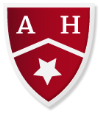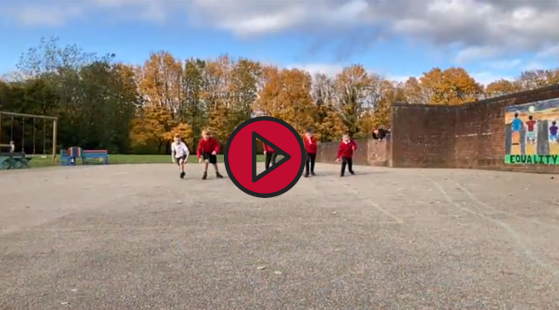Our Curriculum
'You only have to look inside the children's books and at the beautiful displays around the school to see how much pride each child takes in their writing'
Mrs Cleaves, Year 6 Teacher and Writing Subject Leader.
The children are taught all subjects in the National Curriculum. Core subjects include: — English and Maths (taught daily) Science and Computing.
Foundation subjects include: — Art, Design Technology, Geography, History, Music, Personal Social Health and Citizen Education, Physical Education, Religious Education and Languages (French). We believe that every child should have equal access to learning regardless of gender, disability, or cultural background. We aim to provide equal opportunity of learning throughout our curriculum.
Teachers at Almond Hill regularly review the Curriculum. We look at what we are teaching and why and how we are delivering the Curriculum to our children.
In our reviews we consider what we think is really good about our current offer and what we think we can develop to make it even better. We also think about the context of our school community and the world that our children are growing up in, so we prepare them for a successful future as well as what our children have already learned when they come to our school.
We look beyond our own school at current research and what other schools are doing to form our plans and discussion has involved feedback from pupils. Governors are also involved in working with staff to develop our ‘Curriculum Intent’ that you will find published below along with our plans which are published on our year group pages:
Year 3 Curriculum Plans
Year 4 Curriculum Plans
Year 5 Curriculum Plans
Year 6 Curriculum Plans
Curriculum Intent
Our curriculum is designed to ensure:
- Children have access to a broad and rich curriculum, make cross curricular links and see the bigger picture.
- Children achieve their academic potential and have secured strong basic maths and English skills in line with National Curriculum expectation which can be used to solve problems.
- Recognise and develop creative skills.
- Children have the confidence to know that they can achieve anything they put their mind to, the sky is the limit with a good education but to achieve their aspiration hard work is also essential.
- Children are able to communicate in formal and social situations. They will value friendship and the variety of safe relationships in which they interact.
- Children are able to assess risk and take risks — they will know that sometime life has disappointment but have resilience to be able to bounce back.
- Children will know how to keep themselves healthy both physically and emotionally.
- Children will be aware of the benefits of technology but will not be constrained by it.
- Children will have experienced the rich cultural diversity on their doorstep and want to know more about the cultures and languages of our world, particularly those relevant to our community.
- Children will learn to interact socially with different groups and cultures and communicate effectively, including respecting everybody’s views.
- Children leave the school with happy memories of learning and children will want to continue their education and love learning.
Our curriculum planning will:
- Be progressive in skills and vocabulary and will build on the starting point of children as they enter the school. It will have consideration of building on the curriculum of our main feeder school where almost all of our intake start their education.
- Be broad and teach new information that builds on what is already known linking subjects over years and between subjects within years.
- Be exciting and creative so children can learn in different ways and apply their curiosity and imagination.
- Be reviewed regularly being mindful of the cohort it is being delivered to, changes in local circumstances and in respect of statutory requirements.
Curriculum Implementation
Our school has over 300 pupils who are taught in class bases for all except some ability maths groups in years 3, 4 and 5. Year group teachers work collaboratively to plan delivery and add their own creativity. Over the past year our review of our curriculum design has considered a 3D approach:
- vertical - linking subjects over years,
- horizontal – linking learning within a year group and.
- currently we are working on the final part of diagonal looking at links between subjects and year groups.
Most importantly, our curriculum review has been mindful of the context of our school and learning behaviours. September 2021 sees our revised curriculum implemented.
- During 2020 as the curriculum rolled out, staff developed medium term learning maps linked to long term plans (COVID-19 adaptations are in place).
- Some daily maths lessons are taught in ability groups in years 3,4 and 5. Additional timetabled fluency teaching supports basic maths skills
- Our English curriculum is delivered in daily English lessons with additional timetabling to include writing, reading, story, handwriting and spelling.
- Some foundation subjects are taught discretely in weekly timetable: science, RE, PE, PSHCE and computing and others through a topic approach: history, geography, Design technology, art and music in blocked units through the year.
- First quality teaching is enhanced with visits, visitors and, themed day and projects. Some highly skilled support staff lead targeted intervention.
- There is a strong, established ethos of growth mind-set and focus on developing
Subject Leader Profile
Our Subject Leader Profile documents provide an overview of each curriculum subject detailing teaching units over the key stage and the progression of skills we are looking for children to follow in each year group.
You can view each subject leader overview by clicking on the links below:

